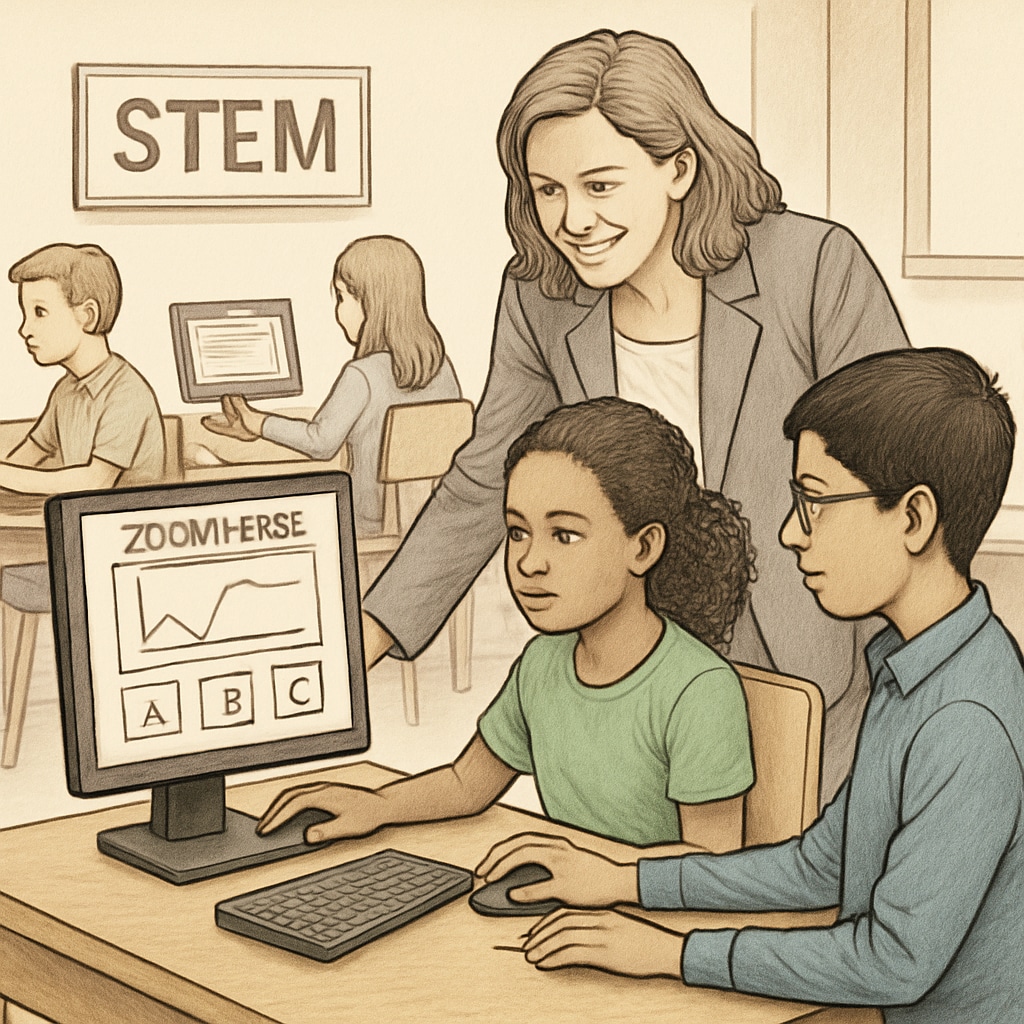Citizen science platforms like Zooniverse are transforming the way K12 students engage with science. By offering access to global scientific projects, Zooniverse not only fosters STEM (Science, Technology, Engineering, and Math) skills in young learners but also allows them to contribute meaningfully to real-world scientific endeavors. This innovative approach bridges the gap between academic theory and practical application, enabling students to develop scientific literacy and civic responsibility while aiding researchers in fields ranging from astronomy to ecology.

What is Zooniverse and Why Does It Matter?
Zooniverse, founded in 2007, is the world’s largest citizen science platform. It boasts over 100 active projects that span diverse scientific disciplines, such as wildlife conservation, astronomy, climate research, and even historical document analysis. The platform enables volunteers—including K12 students—to assist professional researchers by reviewing data, identifying patterns, and solving scientific challenges. Learn more about Zooniverse on Wikipedia.
For educators, Zooniverse offers an unparalleled opportunity to integrate real-world science into the classroom. Students can participate in projects tailored to their interests, making complex scientific concepts more accessible and engaging. This hands-on approach cultivates curiosity and critical thinking while demonstrating the importance of teamwork and global collaboration.
Integrating Zooniverse into K12 Education
Incorporating Zooniverse into K12 classrooms can be a game-changer for STEM education. Here are actionable steps for educators to implement the platform effectively:
- Choose Relevant Projects: Select projects that align with your curriculum, such as ecological studies for biology classes or galaxy classification for physics lessons.
- Set Clear Objectives: Define learning goals to ensure students understand the scientific purpose behind their contributions.
- Provide Guidance: Offer tutorials and instructions to help students navigate the platform and understand their roles.
- Encourage Reflection: Have students discuss their findings and reflect on how their work supports broader scientific efforts.
For example, a middle school class could participate in the “Snapshot Serengeti” project, where students identify animals captured in camera trap images. This not only teaches ecological concepts but also introduces data analysis and observational skills. Explore more about citizen science on Britannica.

Benefits of Citizen Science for K12 Students
Engaging with Zooniverse projects provides numerous benefits for young learners:
- Enhanced STEM Skills: Students gain exposure to scientific methodologies, data analysis, and problem-solving techniques.
- Global Collaboration: Working on international projects fosters a sense of community and shared purpose.
- Real-World Impact: Students contribute directly to scientific research, seeing the tangible effects of their efforts.
- Civic Responsibility: Participation instills a sense of global citizenship and awareness of pressing scientific challenges.
By bridging the gap between science education and real-world application, Zooniverse helps students develop confidence in their abilities and an appreciation for collaborative efforts. This platform is not just a tool for learning—it’s an avenue for making a genuine difference in the scientific community.
The Future of STEM Education with Citizen Science
The integration of citizen science platforms like Zooniverse into K12 education marks a pivotal shift in how STEM subjects are taught. Traditional methods often focus on rote memorization and isolated experiments, but Zooniverse offers an interactive, global approach that prepares students for future scientific endeavors. As a result, educators are not only teaching science—they are empowering the next generation of innovators and problem-solvers.
In the coming years, expanding access to Zooniverse and similar platforms could redefine STEM education. With the right resources and support, every classroom can become a hub for scientific discovery, where students actively contribute to solving real-world challenges. This aligns perfectly with the growing emphasis on experiential learning and global collaboration in modern education systems.
Citizen science has the power to inspire young minds while advancing scientific knowledge—a truly symbiotic relationship that benefits both students and researchers alike. By embracing platforms like Zooniverse, we can ensure that the next generation not only learns science but lives it.


